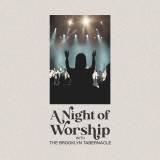Singing Tenor

Who is a tenor? If you stumbled across the term, a tenor is the
highest male singing voice that can be achieved without changing the quality of
sound, that is, switching to falsetto. High notes have a tendency to infuse raw
emotion into any musical piece, be it the screams of Steve Tyler in Aerosmith,
or the operatic style of Pavarotti so many men want to know how to sing tenor.
However everyone is born different and you have to know yourself and thus your
“voice” before you explore how to sing tenor.
1. Finding Your Range: Mark “Middle C” or C4 as your pivot on a
keyboard, and see how low and how high you can go from it, to find out if you
naturally know how to sing tenor. If you are unfamiliar with musical
instruments, there are plenty of programs available for download that can help
you out in learning how to sing tenor. Search for “tuners”, “keyboard”
downloads. Tenors are expected to be at ease one octave below and above mid-C
(C3-C5). More often than not it is not possible to hit those high notes on the
first go. Never fear, for vocal range can be expanded through diligent
exercise.
2. Always Warm-up and Cool-down: While it seems odd to put it this
way, singing is like any other physical exercise, and your vocal chords are
your muscles. Pushing a muscle way beyond its strength is a recipe for injury
and vocal atrophy when you learn how to sing tenor. Ease into your practice
session on how to sing tenor by doing some neck exercises and loosening up of
your chest and shoulder area. Start practicing singing tenor at your
“speech voice” and slowly increasing the pitch until where you are still
comfortable. Do this a couple of times, but don’t try to hit your highest note
at the first go or hold yourself at the greater pitches for too long. The motto
of the day is “relax”. And, as you wrap up the singing tenor session, again
release all the tension by singing “gibberish tones” and coming back to your
speech voice.
3. Working with Pianos: Pianos, organs and other electronic
keyboard instruments are there to provide you support as you practice singing
tenor. When you hit the wrong note, they will let you know by how much, and
slowly you’ll get to know how every transition “feels”. A word of caution here:
it is possible to get over dependent on the keyboard. Know that your primary
instrument is your voice and you have to let go of training wheels some time.
4. Know Your progress, strength and weaknesses: More than hitting
the “dog whistle” notes, your goal in singing tenor is to have a smooth and
polished voice, to be able to transit seamlessly from any part of your range to
any other. Don’t fool yourself, remember, go for the quality of notes not the
quantity.
5. Professional Training: If you have operatic aspirations for
singing tenor, the necessity of training goes without saying. However even if
you are the next Chris Cornell, know that training is not for weaklings. It
will surely help out in singing tenor, but many a singer’s career has been
needlessly shortened due to unhealthy practice. So, find the right sort of
coach; check that they have proper credentials. Furthermore, the coach will
help you quantify your progress and let you see where you are going in singing
tenor.
6. Have Fun in Singing Tenor! Just in case you forget. Join a
church choir, it’s always fun to sing with others, plus you’ll get feedback,
advice on the way you are singing tenor and most importantly practice. Expose
yourself to a variety of music, from Pavarotti to Caruso. Knowing that variety
is the spice of life will prevent you from trying to imitate someone, instead
it will let you find yourself.
Some of the finest singers have been – and are – tenors. So, developing
your voice such that you have a strong voice in singing tenor can be a boom to
your singing career.
Singing Tenor
 Reviewed by Admin
on
4:55:00 PM
Rating:
Reviewed by Admin
on
4:55:00 PM
Rating:
 Reviewed by Admin
on
4:55:00 PM
Rating:
Reviewed by Admin
on
4:55:00 PM
Rating:
















Post a Comment